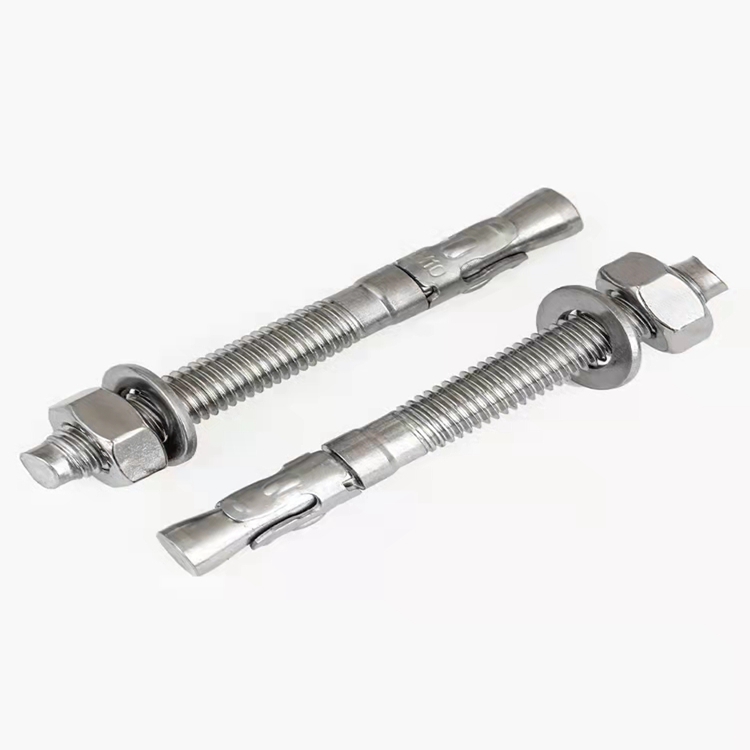washers for carriage bolts factories
Nov . 02, 2024 10:15 Back to list
washers for carriage bolts factories
The Importance of Washers for Carriage Bolts in Manufacturing
When it comes to construction and manufacturing, the integrity of fasteners is paramount. Carriage bolts, known for their rounded heads and square necks, are commonly used in various applications, particularly in wood and metal connections. However, to ensure a secure and stable assembly, the use of washers alongside these bolts is crucial. This article will explore the role and significance of washers for carriage bolts in industrial settings, particularly in factories.
Understanding Carriage Bolts and Their Application
Carriage bolts are designed to prevent rotation when tightened, making them ideal for connecting wood to wood or wood to metal. Their unique design allows for a secure fit, but without the right additional components, such as washers, their performance can be compromised. Washers serve as a critical interface between the bolt head or nut and the material being fastened, distributing the load and reducing the risk of damage to the surface.
The Role of Washers
1. Load Distribution One of the primary functions of a washer is to distribute the load of the bolt head or nut across a larger surface area. This distribution helps minimize the risk of damage to the material being fastened, especially softer materials like wood or thin metal. By preventing indentation and deformation, washers play a vital role in maintaining the integrity of both the fastener and the materials involved.
2. Vibration Resistance In many industrial applications, assemblies are subjected to vibrations caused by machinery or environmental factors. Washers, especially those made of specific materials designed to absorb shocks and vibrations, can help keep the connection stable. Using lock washers, for example, can add an extra layer of security by preventing the fastener from loosening over time.
washers for carriage bolts factories

3. Corrosion Prevention In some scenarios, the materials used for carriage bolts and washers differ. This dissimilarity can lead to galvanic corrosion if certain precautions are not taken. Washers can act as a barrier, preventing direct contact between different metals and mitigating the risk of corrosion that can compromise the fastener's integrity.
Finding Quality Washers in Factories
In factories that manufacture carriage bolts, sourcing high-quality washers is essential. The right suppliers will offer a variety of washers—flat, lock, fender, and more—each suited for different applications and materials. Factories should evaluate suppliers based on material quality, production processes, and compliance with industry standards.
Additionally, factories can benefit from custom washer production tailored to specific project requirements. This flexibility allows for optimizing performance in unique applications while ensuring compatibility with various carriage bolt sizes and types.
Conclusion
In summary, washers are an indispensable component when using carriage bolts in manufacturing and construction. They enhance load distribution, provide resistance against vibrations, and prevent corrosion, ensuring the long-lasting strength and durability of assembled structures. Manufacturers should prioritize the quality of washers, ensuring they are sourced from reliable factories that understand the demands of industrial applications. By doing so, they can uphold the safety and integrity of their products, paving the way for successful projects and satisfied customers.
Latest news
-
High-Quality Panel Stud Bolt Reliable Panel Stud Bolt Factory & Suppliers
NewsJul.08,2025
-
High-Precision Fine Thread Locknuts Manufacturer & Supplier Custom Solutions
NewsJul.08,2025
-
PH Imperial Stud Bolt – High Strength Fasteners from Leading Supplier & Factory
NewsJul.07,2025
-
High-Quality Allen Wrench Bolts Leading Factory, Company & Suppliers
NewsJul.07,2025
-
Wholesale Ball Stud Bolt - High Quality Supplier & Factory Price Reliable Wholesale Ball Stud Bolt Company
NewsJul.06,2025
-
High-Strength Alloy Bolts Manufacturer & Supplier Quality Alloy Fasteners Factory
NewsJul.06,2025
